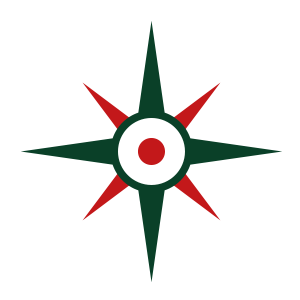ISM News
Update nr. 102
In this ISM News Update:
- MAIB Safety digest
- CO2 emissions international shipping
- Ballast water management
- Online Security Awareness training
- Danish regulations – Safe Sea Net
- Inventory hazardous materials (IHM)
MAIB Safety Digest 2019
The U.K. Marine Accident Investigation Branch (MAIB) has launched its first digest of lessons learned from marine accidents for 2019. In its introduction, Andrew Moll, Chief Inspector of Marine Accidents highlights that the report shall be passed and sent as ‘there is no limit to the number of people who can learn from the experiences of others’.
MAIB Safety Digest
CO2 emissions international shipping
In order to reduce emissions from shipping, the European Union (EU) has introduced the shipping monitoring, reporting and verification (MRV) regulation, which is designed to gather data on CO2 emissions based on ships’ fuel consumption. In parallel, the IMO has introduced a three-step approach, based on collecting and analyzing fuel consumption data. The first stage is now implemented through amendments to MARPOL Annex VI and is known as the IMO Data Collection System (DCS). Implementation of these regulations (all ships > 5000 GT) presents a significant compliance challenge for shipowners and operators. Central to this is the regulatory requirement to undertake data collection and independent verification, which started on 1rst of march 2018. RBG can assist to make the compliance process as simple and transparent as possible.
Guidance for best practice on Sampling (Ballast Water Management)
EMSA (European Maritime Safety Agency) has issued Guidance for best practices on sampling.
This document is available on the EMSA website, click here.
The Ballast Water Management Convention or BWM is a treaty adopted by the International Maritime Organization (IMO) in order to help prevent the spread of potentially harmful aquatic organisms and pathogens in ships’ ballast water.
This document is intended to provide guidance for a harmonized approach to ballast water sampling procedures, identifying best practices according to the different standards, D-1 and D-2 for ascertaining compliance with the Ballast Water Convention.
Online Security Awareness training
We are excited to announce that as from July future seafarers can follow the Dutch flag approved, STCW training Security awareness completely online. Rood Boven Groen is the first company approved by the Dutch flag authorities to offer Security Awareness in an e-Learning environment.
Upon completion of the review, this course complies with the following standards and training requirements:
- Regulation 13.4 (Part B) and 18.3 (Part B) of the International Ship and Port Facility Security (ISPS) Code
- IMO Model Course 3.27 Security Awareness Training for all Seafarers (2012 edition)
- STCW 1978, as amended, Regulation VI/6.1-3 and STCW Code Section A-VI/6.4
The main focus point has been online identification which makes it possible to follow the online training anywhere and anytime you want.
Danish regulations – Safe Sea Net
Recently a few vessels have been forced, by well-armed police, to leave the harbor of Kopenhagen upon arrival. The vessels had to leave because they did not give notice of their arrival via Safe Sea Net. The vessel was summed to return immediately to where the journey had started.
According to the police, it is obligatory for all commercial (sailing) vessels with more than 12 passengers (including sailing vessels <300GT and <45M) to report your arrival.
If you wish to visit one of the harbors of Denmark the obligations are:
- To apply for a permit in the police district of where that specific harbor in Denemarken is located. Denmark is divided into 14 police districts. A permit is required for each separate district and has their own email address (see www.politi.dk).
- This coincides with the obligation to report at Safe Sea Net your crew and trainee list (for them passengers). And preferably the harbor prior to arrival and after arrival.
Inventory of Hazardous Materials >500GT
On 31-12-2020 a mandatory inventory of hazardous materials will need to be available on all ships of 500GT and over engaged in international voyages. The inventory can be made by Class approved companies and involves sampling and analysis of materials. At this moment the following companies are approved by BV: Oesterbaai, Sanitas & Maritime Asbestos Solutions.
For further information please find the link to EMSA guidance below or contact us at info@roodbovengroen.com



